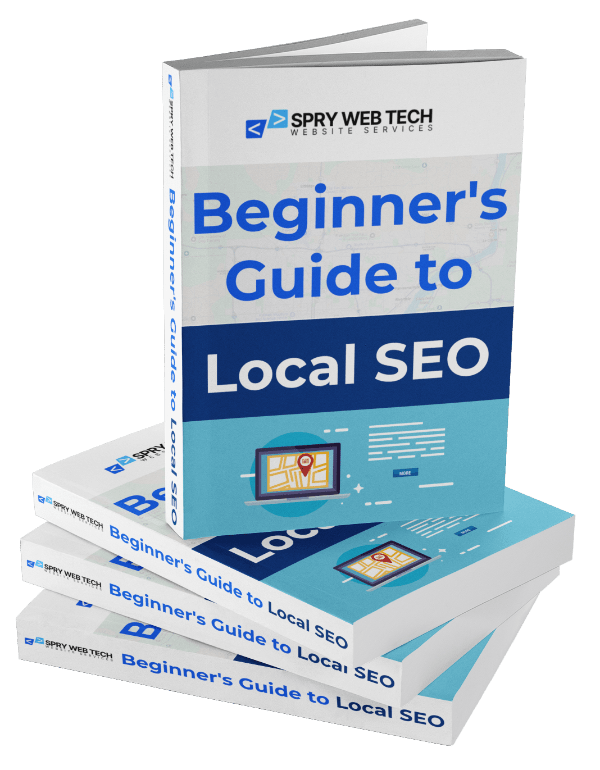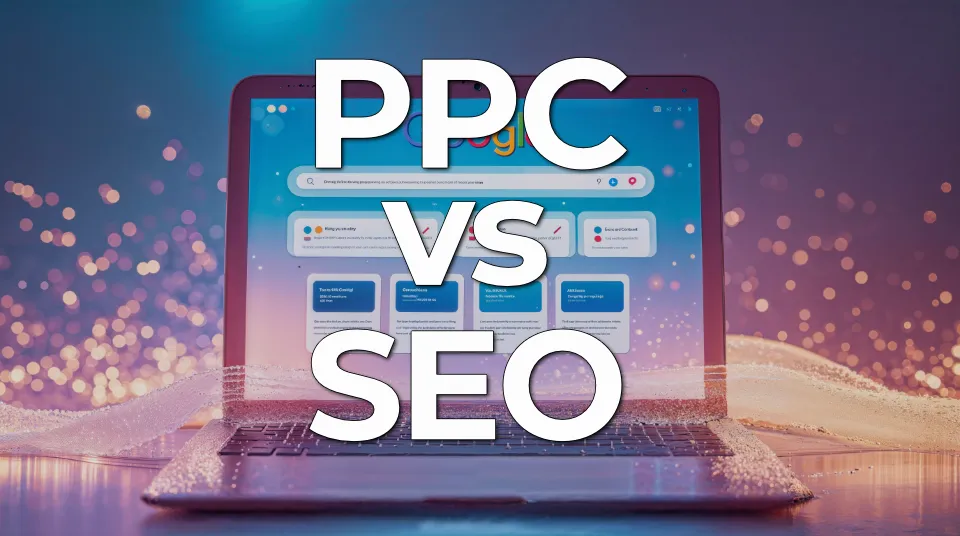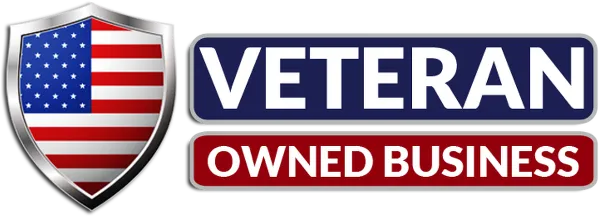How to leverage schema markup to attract new customers.
Local businesses face fierce competition in search results, with customers increasingly relying on Google to find nearby services and products. While most business owners focus on basic SEO tactics, schema markup represents one of the most underutilized yet powerful tools for gaining a competitive edge in local search.
Schema markup is structured data that helps search engines understand your content better, leading to enhanced search results called rich snippets. For local businesses, this translates directly into increased visibility, higher click-through rates, and ultimately more customers walking through your doors.
Why Schema Markup is Critical for Local Business Success
When potential customers search for local services, they’re presented with a sea of blue links. Schema markup transforms your ordinary listing into an eye-catching, information-rich snippet that stands out from competitors. Studies show that rich snippets can increase click-through rates by 30-35%, while businesses using proper schema markup see an average 15-20% increase in organic traffic within six months.
The power of schema lies in its ability to communicate directly with search engines. Instead of guessing what your content means, Google can definitively understand that you’re a plumbing company, your hours of operation, customer ratings, and even your current service areas. This clarity leads to better rankings for relevant local searches and more prominent display in search results.
How Schema Markup Creates Rich Snippets That Drive Traffic
Rich snippets are enhanced search results that display additional information beyond the standard title, URL, and description. Think of schema markup as a direct communication channel with search engines, telling them exactly what information to highlight in search results. When implemented correctly, schema transforms your invisible code into visible, compelling search features that dramatically improve your click-through rates and drive qualified traffic to your business.
The Psychology Behind Rich Snippet Success
Rich snippets work because they address fundamental human decision-making patterns. When faced with multiple search results, users make split-second judgments based on available information. A plain blue link provides minimal context, forcing users to click through and investigate each option. Rich snippets eliminate this friction by providing decision-making information directly in search results.
Consider a searcher looking for “Italian restaurant downtown.” A standard listing shows only the restaurant name, URL, and a brief description. But a rich snippet might display the restaurant’s 4.8-star rating with 203 reviews, current hours showing “Open until 10 PM,” price range indicated by “$ – $$,” and even a photo of their signature dish. This wealth of information allows the searcher to make an informed decision without clicking through to multiple websites.
The psychological principle at work is cognitive ease – humans prefer options that require less mental effort to evaluate. Rich snippets reduce cognitive load by presenting pre-filtered, relevant information, making your business the obvious choice for qualified prospects.
Types of Rich Snippets That Transform Local Business Visibility
Star Ratings and Review Snippets: The Trust Multiplier
Star ratings represent the most powerful form of social proof in search results. When searchers see 4.8 stars with 127 reviews directly in search results, they’re 73% more likely to click than on a plain listing, according to search behavior studies. But the impact goes deeper than just attraction – star ratings pre-qualify your audience.
A business displaying 4.8 stars attracts customers with higher expectations who are willing to pay premium prices for quality service. Conversely, a 3.2-star rating might deter high-maintenance customers while attracting price-conscious buyers who are more forgiving of minor issues. This pre-filtering effect improves conversion rates because the traffic you receive is already aligned with your actual service level.
The review count is equally important. A business with 4.9 stars but only 3 reviews appears less trustworthy than one with 4.6 stars and 150 reviews. The combination of rating and volume creates a credibility hierarchy that searchers intuitively understand.
Hours and Availability Information: Eliminating Frustration
Nothing frustrates potential customers more than driving to a business only to find it closed. Schema markup for business hours eliminates this friction by displaying current status directly in search results. When your listing shows “Open until 8 PM” or “Closed – Opens at 9 AM,” you save customers time while ensuring they visit when you’re available to serve them.
Advanced implementations can display dynamic hours that adjust for holidays, special events, or seasonal changes. A restaurant might show “Extended hours for Valentine’s Day – Open until 11 PM” or a retail store might display “Holiday hours: Open until 9 PM through December 24th.” This level of detail demonstrates professionalism and helps customers plan their visits accordingly.
For service businesses, availability schema can indicate current booking status. A hair salon might show “Next available appointment: Tomorrow at 2 PM” or an HVAC company could display “Emergency service available 24/7.” This immediate availability information can trigger urgent bookings from customers who need immediate service.
Location and Service Area Enhancement: Geographic Relevance
Local businesses must clearly communicate not just where they’re located, but where they provide services. Schema markup allows sophisticated geographic targeting that goes beyond simple addresses. A plumbing company can specify that they serve a 25-mile radius from their location, while also indicating they offer emergency services in a smaller 15-mile area.
For multi-location businesses, schema can display the closest location to the searcher automatically. A chain restaurant can show “3 locations near you” with the closest one prominently featured, complete with distance and driving time estimates.
Service area schema becomes particularly powerful for businesses that travel to customers. A landscaping company can indicate they serve specific zip codes, cities, or geographic regions, helping them appear in location-specific searches while filtering out inquiries from areas they don’t serve.
Pricing Information: Setting Expectations
Price transparency in search results serves multiple strategic purposes. For businesses competing on value, displaying “$50-75 per service call” can attract price-conscious customers while deterring those expecting unrealistically low prices. Premium service providers can use pricing schema to position themselves as high-quality options by showing “$150-200 per consultation.”
Restaurant schema can display price ranges using dollar signs ($, $, $$, $$) that immediately communicate positioning. A “$” Italian restaurant attracts different diners than a “$$” fine dining establishment, and schema helps match customers with appropriate options before they click through.
Service businesses can use pricing schema creatively by showing package deals or service bundles. An auto repair shop might display “Oil change packages starting at $39” or a marketing consultant could show “Strategy packages from $2,500.” This approach provides pricing context while highlighting value propositions.
Event and Promotion Snippets: Creating Urgency
Event schema transforms time-sensitive opportunities into compelling search enhancements. A restaurant’s “Wine Tasting Event – Tonight 7 PM” or a retail store’s “Flash Sale – 50% off today only” creates immediate urgency that drives quick action.
The key to effective event schema is specificity and scarcity. Instead of generic “Sale this weekend,” use precise language like “72-hour clearance event – ends Sunday at midnight.” This specificity triggers fear of missing out (FOMO) while providing clear action timelines.
Recurring events benefit from schema markup because they create predictable traffic patterns. A restaurant’s “Trivia Night – Every Wednesday 8 PM” or a fitness center’s “Free yoga class – Saturdays 9 AM” can capture weekly recurring searches and build customer habits around your events.
Advanced Rich Snippet Features That Maximize Impact
Breadcrumb Navigation: Showing Site Structure
Breadcrumb schema helps searchers understand your website structure before they visit. Instead of showing just your homepage URL, breadcrumbs might display “Homepage > Services > Emergency Plumbing > 24-Hour Service.” This additional context helps searchers understand exactly what page they’ll land on and whether it matches their intent.
For local businesses with multiple service pages, breadcrumbs can significantly improve click-through rates by showing the specific service page rather than just the general business name. A searcher looking for “emergency electrician” is more likely to click on a result showing they’ll land on an emergency services page rather than a generic business homepage.
FAQ Snippets: Answering Questions in Search Results
Frequently Asked Questions schema can trigger featured snippets that position your business as the authoritative answer to common questions. When someone searches “How much does carpet cleaning cost?”, your FAQ schema might trigger a featured snippet that displays your answer along with your business information.
The strategic advantage is that FAQ snippets often appear for informational searches that precede commercial intent. Someone researching carpet cleaning costs today may hire a service next week. By providing helpful answers in search results, you build brand awareness and trust that leads to future conversions.
Effective FAQ schema focuses on questions your customers actually ask, not just what you want to promote. Use customer service logs, sales conversations, and online reviews to identify genuine questions, then provide comprehensive answers that demonstrate expertise while subtly highlighting your services.
Product and Service Snippets: Showcasing Offerings
Individual products and services can generate their own rich snippets with descriptions, pricing, availability, and customer reviews. A landscaping company might have separate rich snippets for “Lawn Maintenance,” “Tree Removal,” and “Landscape Design,” each with specific pricing and customer ratings.
This granular approach allows you to capture traffic for specific service searches while building authority around your expertise areas. Instead of competing broadly as a “landscaping company,” you can dominate specific niches like “emergency tree removal” or “drought-resistant landscape design.”
The Cumulative Effect: How Multiple Schema Types Work Together
The real power of schema markup comes from implementing multiple types simultaneously. A local restaurant might combine LocalBusiness schema (for basic information), Review schema (for ratings), Event schema (for special dinners), Menu schema (for specific dishes), and FAQ schema (for common questions about dietary restrictions).
This comprehensive approach creates a dominant search presence where your business appears enhanced across multiple query types. A searcher might first encounter your restaurant through an event snippet for a wine tasting, then see your high ratings when searching for “best Italian restaurants,” and finally notice your comprehensive FAQ answers when researching gluten-free options.
The cumulative effect builds brand recognition and trust through repeated positive exposures in search results. Even if someone doesn’t click on your first enhanced listing, they’re more likely to choose your business when they encounter your professional, information-rich snippets repeatedly across different searches.
This multi-schema strategy also provides resilience against algorithm changes. If Google reduces the prominence of one type of rich snippet, your other schema implementations ensure you maintain enhanced visibility through alternative formats.
Essential Schema Types Every Local Business Should Implement
LocalBusiness Schema: Your Foundation
The LocalBusiness schema is your starting point, providing search engines with fundamental information about your business. This includes your name, address, phone number, hours of operation, and business type. However, most businesses only scratch the surface of what’s possible with LocalBusiness schema.
Beyond basic contact information, you can include detailed service areas using the “areaServed” property, specify multiple business locations, and even indicate whether you offer services at customer locations. For service businesses, you can specify that you serve customers’ locations rather than requiring them to visit your premises.
Organization Schema: Building Authority
Organization schema complements your LocalBusiness markup by establishing your company as a recognized entity. This is particularly powerful when combined with knowledge graph optimization. Include your logo, social media profiles, founding date, and key personnel. This helps Google understand your business as a cohesive entity rather than just a collection of web pages.
Review Schema: Social Proof That Converts
Review schema transforms customer feedback into powerful search result enhancements. When properly implemented, your star ratings and review counts appear directly in search results, creating immediate social proof. The key is aggregating reviews from multiple sources and ensuring your schema accurately reflects your overall reputation.
Advanced Schema Strategies That Most Businesses Miss
Service Schema for Granular Targeting
Instead of just marking up your business as a general category, use Service schema to define specific services you offer. A plumbing company shouldn’t just be marked up as “Plumber” but should include specific services like “Emergency Plumbing,” “Drain Cleaning,” and “Water Heater Installation.”
This granular approach allows you to appear in more specific search queries. When someone searches for “emergency plumber near me,” your Emergency Plumbing service markup can help you rank higher than competitors who only use general plumbing markup.
Create separate Service schema entries for each major service, including detailed descriptions, service areas, and even typical pricing ranges. This creates multiple opportunities to appear in search results for various related queries.
FAQ Schema: Capturing Voice Search Traffic
FAQ schema is becoming increasingly important as voice search grows. By marking up frequently asked questions and their answers, you can appear in featured snippets and voice search results. The key is identifying questions your customers actually ask and providing comprehensive answers.
For a local restaurant, this might include questions about dietary accommodations, reservation policies, or parking information. For a service business, focus on pricing, availability, and service area questions.
The strategic advantage is that FAQ schema allows you to rank for question-based queries that may not have direct commercial intent but lead to conversions. Someone asking “How much does it cost to fix a leaky faucet?” may not be ready to hire a plumber immediately, but your helpful answer positions you as the expert they’ll call when they’re ready.
Event Schema for Time-Sensitive Opportunities
Even if you’re not an event venue, Event schema can drive significant traffic for local businesses. Restaurants can mark up special dinners, live music nights, or holiday events. Retail stores can promote sales events, product launches, or seasonal promotions.
The power of Event schema lies in Google’s event-specific search features and the urgency it creates. Events appear in Google’s event listings, Google Maps, and can trigger special search result features that give you additional visibility.
Consider recurring events like “Taco Tuesday” or “Wine Wednesday” as opportunities to create regular Event schema that keeps your business visible for weekly searches.
Innovative Schema Applications for Competitive Advantage
Product Schema for Service Businesses
Most service businesses overlook Product schema, but it can be incredibly effective when applied creatively. A landscaping company can mark up specific service packages as products, complete with descriptions, pricing, and customer reviews.
This approach allows service businesses to appear in product-related searches and Google Shopping results, traditionally dominated by retail businesses. A “Complete Lawn Care Package” marked up as a product can appear when someone searches for lawn care solutions, giving you visibility alongside traditional product listings.
Course Schema for Educational Content
Businesses that offer any form of training or education can leverage Course schema for significant visibility gains. A fitness center offering personal training can mark up their programs as courses. A financial advisor offering investment workshops can use Course schema to appear in educational searches.
This strategy works particularly well for professional services where expertise and education are key differentiators. By positioning your knowledge as structured educational content, you can appear in searches for learning opportunities while subtly promoting your services.
Recipe Schema for Food-Related Businesses
Restaurants, catering companies, and food retailers can use Recipe schema to capture a massive audience searching for cooking information. Create detailed recipes for signature dishes, seasonal specialties, or simplified versions of complex menu items.
The genius of this strategy is that recipe searches have enormous volume and relatively low competition from local businesses. By providing valuable recipes, you build brand awareness and position your business as an authority, leading to increased visits and catering inquiries.
Video Schema for Multi-Media Content
Video content continues to grow in importance, and Video schema ensures your video content gets maximum visibility. Mark up service demonstrations, customer testimonials, virtual tours, and educational content with Video schema.
This is particularly effective for businesses in visual industries like home improvement, beauty services, or automotive repair. A before-and-after video of a bathroom renovation marked up with Video schema can appear in both video search results and general search results for bathroom remodeling services.
Technical Implementation Strategies
JSON-LD vs. Microdata: Choosing Your Format
JSON-LD is Google’s preferred format for schema markup because it’s cleaner and easier to maintain. Unlike microdata, which requires marking up HTML elements directly, JSON-LD can be added to your page’s head section without affecting your visible content.
For local businesses, JSON-LD offers the advantage of centralized management. You can create templates for different types of pages and easily update schema across your entire site. This is particularly valuable for businesses with multiple locations or service areas.
Dynamic Schema for Real-Time Information
Advanced implementations can include dynamic schema that updates automatically based on current information. Restaurant hours can adjust for holidays, service availability can reflect current capacity, and pricing can update based on demand or seasonal factors.
This dynamic approach ensures your schema always reflects accurate information, improving both search engine trust and user experience. It also allows for real-time optimization based on business conditions.
Schema Validation and Testing
Proper implementation requires rigorous testing using Google’s Rich Results Test and Schema Markup Validator. However, testing should go beyond technical validation to include performance monitoring. Track which schema implementations drive the most traffic and conversions, then optimize accordingly.
Regular auditing ensures your schema remains effective as search algorithms evolve and your business changes. Set up monthly reviews to verify accuracy and identify new schema opportunities.
Measuring Success and ROI
Key Performance Indicators
Track specific metrics that demonstrate schema markup’s impact on your business. Monitor organic click-through rates for pages with rich snippets compared to those without. Measure the percentage of traffic coming from featured snippets and enhanced search results.
Local businesses should pay particular attention to location-based metrics. Track how schema affects visibility for “near me” searches and monitor changes in local pack appearances. These local-specific improvements often provide the highest ROI for brick-and-mortar businesses.
Conversion Tracking
Implement conversion tracking that attributes sales and leads to schema-enhanced search results. This might require UTM parameters or specialized tracking for phone calls generated from enhanced listings. Understanding the complete customer journey from rich snippet to conversion helps justify continued investment in schema optimization.
Competitive Analysis
Monitor competitors’ use of schema markup and identify gaps in their implementation. Tools like SEMrush and Ahrefs can help identify which competitors are using schema effectively and which opportunities remain unclaimed in your market.
Future-Proofing Your Schema Strategy
Emerging Schema Types
Stay informed about new schema types and properties being developed. Google regularly introduces new schema opportunities, and early adopters often see the biggest benefits. Subscribe to Google’s Webmaster Blog and Schema.org updates to identify new opportunities before your competitors.
Voice Search Optimization
As voice search continues growing, optimize your schema for conversational queries. This means including natural language in your descriptions and ensuring your FAQ schema addresses questions as people actually ask them, not just as they type them.
AI and Machine Learning Integration
Future schema implementations will likely integrate more closely with AI tools for dynamic content generation and optimization. Prepare your technical infrastructure to support more sophisticated schema applications as these technologies mature.
Common Mistakes That Sabotage Results
Many local businesses implement basic schema but make critical errors that limit effectiveness. Inconsistent NAP (Name, Address, Phone) information across schema and other online listings confuses search engines and can actually hurt rankings.
Another common mistake is implementing schema without considering user intent. Marking up information that isn’t relevant to your target audience wastes opportunities and can lead to irrelevant traffic that doesn’t convert.
Over-optimization is also problematic. Stuffing schema with excessive keywords or irrelevant information can trigger Google penalties. Focus on accuracy and relevance rather than trying to game the system.
Conclusion: Schema as a Competitive Advantage
Schema markup represents one of the most underutilized opportunities in local SEO. While your competitors struggle with basic optimization, implementing comprehensive schema markup can provide immediate visibility improvements and long-term competitive advantages.
The businesses that succeed with schema are those that think beyond basic implementation to consider creative applications that align with their specific customer journey and business model. By combining technical excellence with strategic thinking, schema markup becomes a powerful tool for dominating local search results and driving sustainable business growth.
Start with the essential schema types, then gradually implement more sophisticated strategies as you see results. Remember that schema markup is not a one-time implementation but an ongoing optimization opportunity that can continue driving results as your business evolves and search technology advances.
The investment in proper schema implementation pays dividends not just in search rankings, but in the overall professionalism and credibility of your online presence. In an increasingly competitive local market, schema markup isn’t just an SEO tactic—it’s a business necessity.
Want to get noticed more in search results? Spry Web Tech can help. Contact us today to get started.










